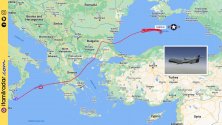An important piece of news that flew under the radar. The Hegemon is taking over the defense, national security and economic departments of Taiwanese government. There will not be a peaceful unification.
郭正亮 talked about it starting 6:50
RYO NAKAMURA, Nikkei staff writer
December 16, 2022 01:14 JST
TOKYO -- The U.S. plans to send government employees to Taiwan for two-year stints through a new fellowship program starting next fall, seeking to encourage closer bilateral cooperation as China ramps up pressure on Taipei.
Fellows will spend their first year learning Mandarin Chinese and other relevant subjects, followed by a year working with a government agency or parliamentary office.
The program, under the heading of the Taiwan Fellowship Act, is included in this year's National Defense Authorization Act, which sets military funding levels for the fiscal year ending September 2023.
The U.S. has sent government employees to Taiwan for months at a time, but longer-term programs like this are rare, a congressional source said.
Executive Director Richard Pearson of the Western Pacific Fellowship Project, a nonprofit that is expected to help manage the program, discussed the plans with Nikkei.
If the NDAA passes this month or soon after, the organization is "in a position to launch the program in early 2023 and to welcome the first class of fellows to Taiwan to begin language training in September 2023, but appropriate preparation needs to begin now," Pearson said.
The Senate will vote on the NDAA as early as Thursday evening, a Senate source told Nikkei. President Biden is expected to sign it into law soon after the Senate approval.
Applicants will be recruited from a broad range of agencies related to economic and security issues, as well as the armed forces, but not intelligence services, according to Pearson. Around 10 fellows are expected to be sent each year, though the total will initially be in the single digits.
During a visit to Taiwan in late November to early December, "we met with NGOs, government officials, legislators, media and supporters," Pearson said. "We found very strong support for the proposed fellowship program and a desire that the Taiwan Fellowship Act be passed this month and the fellowship program launched next year."
With tensions with China over Taiwan expected to last for some time to come, Washington looks to provide more support to Taipei through exchanges like this along with visits by lawmakers. Familiarizing government employees with Taipei's decision-making processes and policy development will help the two sides coordinate, the thinking goes.
The program will deepen ties between Washington and Taipei by "supporting American public servants as they benefit from the wealth of knowledge, culture and trade that Taiwan contributes to the global community -- creating a stronger, more resilient U.S.-Taiwan partnership and supporting our nation's commitment to the Indo-Pacific region," Sen. Ed Markey, a sponsor of the Taiwan Fellowship Act, said in a statement.
President Joe Biden's administration has taken other steps to encourage bilateral exchanges. Guidelines issued by the U.S. government in April 2021 encourage holding working-level talks in federal buildings, as well as allow meetings to be held at Taiwan's representative office in Washington.
The Taiwan Travel Act enacted in 2018 encourages visits between the U.S. and Taiwan by officials at all levels, including cabinet members. During previous President Donald Trump's administration, Health and Human Services Secretary Alex Azar traveled to Taiwan in 2020, angering China.

